15 TV Antiheroes We Couldn’t Help but Root For
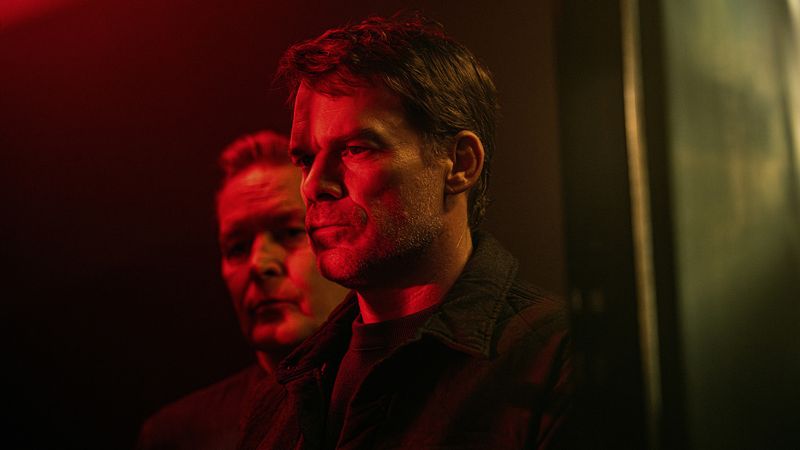
Television has given us some of the most complicated characters we’ve ever loved. Antiheroes break all the rules, make terrible choices, and sometimes do truly awful things, yet we still find ourselves cheering them on. Maybe it’s their charm, their tragic backstories, or just the thrill of watching someone embrace their dark side that keeps us hooked episode after episode.
1. Walter White (Breaking Bad)
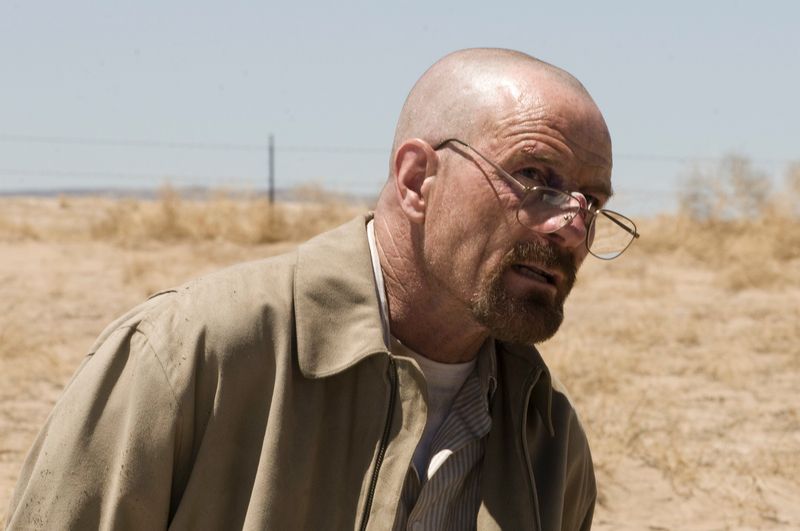
A high school chemistry teacher diagnosed with terminal cancer makes one desperate decision that changes everything. Walter White starts cooking methamphetamine to secure his family’s financial future, but pride and power quickly corrupt his noble intentions. His transformation from mild-mannered educator to ruthless drug lord is television’s most compelling character arc.
We root for Walt initially because his situation feels unfair. A brilliant chemist reduced to washing cars for extra money while battling cancer deserves better, right? But as his empire grows, so does his ego and willingness to hurt others.
His relationship with former student Jesse Pinkman reveals both his manipulative nature and rare moments of genuine care. Walt’s journey shows how easily good people can justify terrible actions when they believe the ends justify the means.
2. Dexter Morgan (Dexter)
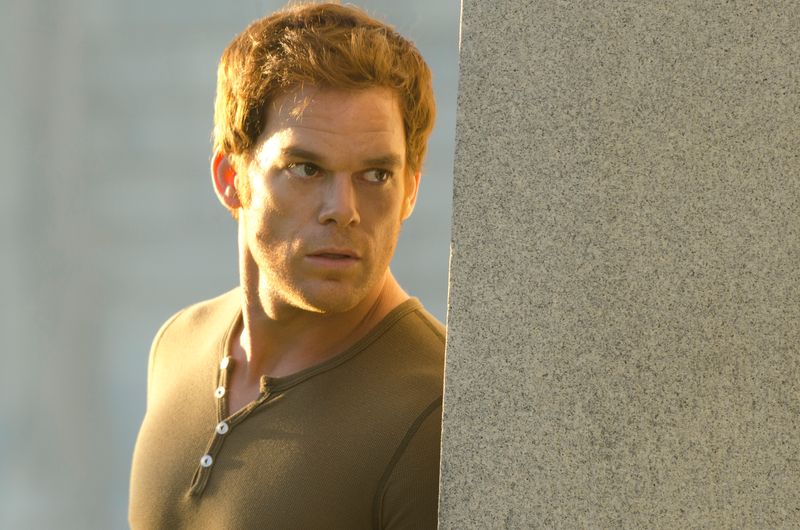
Blood spatter analyst by day, vigilante serial killer by night. Dexter Morgan operates under a strict code taught by his adoptive father: only kill other murderers who’ve escaped justice. This moral framework makes his gruesome hobby somehow acceptable to viewers.
His internal monologue reveals a man desperately trying to appear normal while hiding his “Dark Passenger.” We watch him navigate relationships, fatherhood, and workplace dynamics all while planning his next kill. The show forces us to examine our own sense of justice and revenge.
Dexter’s meticulous planning and genuine care for his sister Debra humanize him despite his horrific actions. His struggle to understand human emotion while protecting innocents creates a strange sympathy that shouldn’t exist but absolutely does.
3. Tony Soprano (The Sopranos)
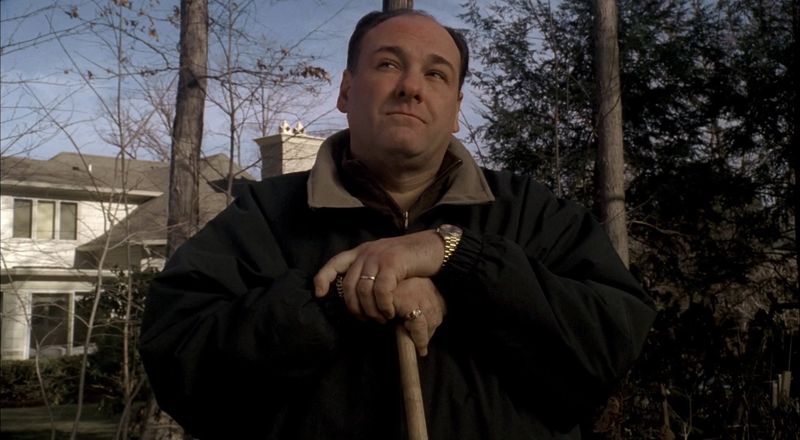
Running a criminal organization while dealing with panic attacks isn’t easy. Tony Soprano balances brutal mob business with therapy sessions, family dinners, and suburban life in New Jersey. He’s a murderer and extortionist who also feeds ducks in his pool and worries about his kids’ futures.
His therapy sessions with Dr. Melfi give us insight into the childhood trauma and family pressures that shaped him. Tony genuinely loves his wife Carmela and children, even as his lifestyle constantly threatens their safety and happiness. His loyalty to his crew conflicts with necessary business decisions that require betrayal.
The show’s brilliance lies in making us sympathize with a mob boss. Tony’s vulnerability, humor, and occasional kindness create emotional connections despite his violence and infidelity.
4. Don Draper (Mad Men)
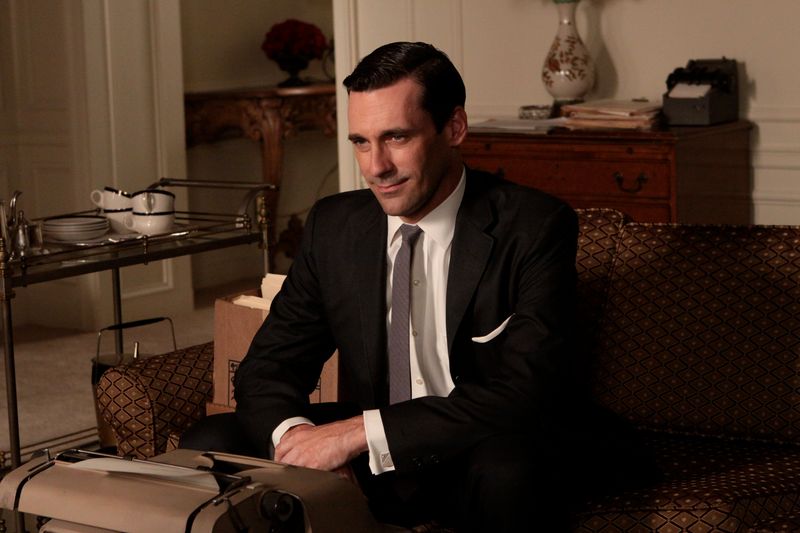
Behind the polished exterior of Madison Avenue’s most talented ad man lies a stolen identity and constant self-destruction. Don Draper is actually Dick Whitman, a poor farm boy who assumed a dead officer’s identity during the Korean War. His entire glamorous life is built on a foundation of lies.
His creative genius and magnetic charm make him irresistible to colleagues and women alike. Yet Don sabotages every relationship and drinks away his guilt in a never-ending cycle. He creates beautiful campaigns selling the American Dream while being unable to achieve happiness himself.
We’re drawn to his mysterious past and the rare moments when his carefully constructed facade cracks. Don represents the emptiness behind 1960s glamour and the cost of running from yourself.
5. Omar Little (The Wire)
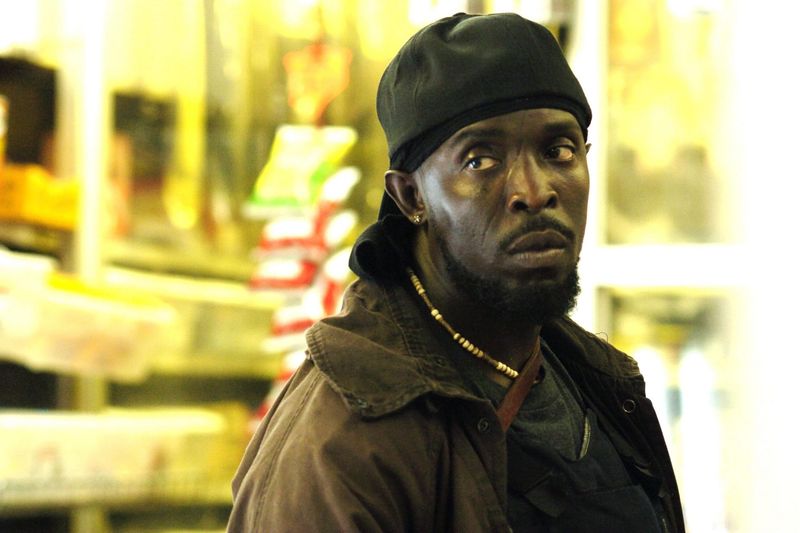
Whistling “The Farmer in the Dell” while robbing drug dealers takes a special kind of courage. Omar Little is a stick-up artist who exclusively targets Baltimore’s drug trade, living by a strict moral code in an immoral world. He never harms innocents and keeps his word, making him more honorable than the police or dealers.
His openness about being gay in a hyper-masculine environment shows remarkable bravery. Omar’s love for his partners, particularly Brandon, reveals genuine tenderness beneath his fearsome reputation. Even hardened criminals scatter when they hear him coming.
His testimony in court against a powerful drug lord demonstrates his integrity. Omar represents justice outside the broken legal system, making us question who the real heroes are in the war on drugs.
6. BoJack Horseman (BoJack Horseman)
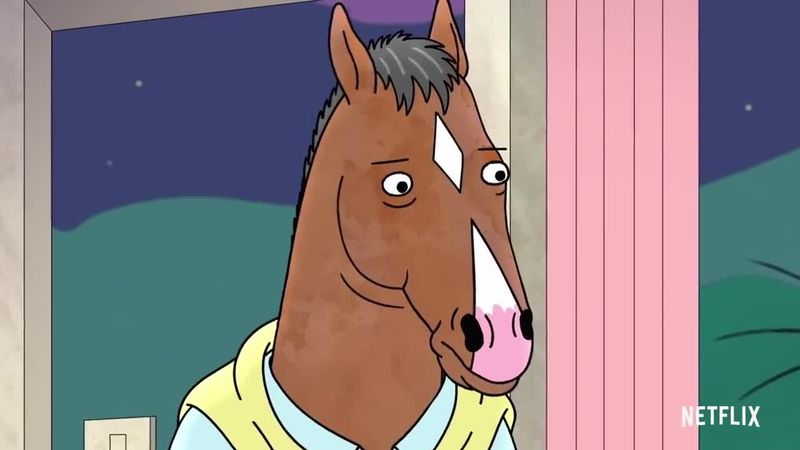
A washed-up 90s sitcom star who happens to be a horse sounds like comedy gold, but BoJack’s story cuts deep. His struggles with depression, addiction, and self-loathing feel painfully real despite the cartoon format. He desperately wants to be better but repeatedly sabotages his own progress and hurts everyone around him.
BoJack’s childhood trauma from emotionally abusive parents explains but doesn’t excuse his terrible behavior. He’s selfish, manipulative, and destructive, yet his self-awareness makes him tragically sympathetic. We’ve all felt like failures or disappointed ourselves, just not quite so spectacularly.
The show explores how difficult real change is when you’re battling mental illness and addiction. BoJack’s journey reminds us that wanting to improve isn’t the same as actually doing the work.
7. Saul Goodman / Jimmy McGill (Better Call Saul)
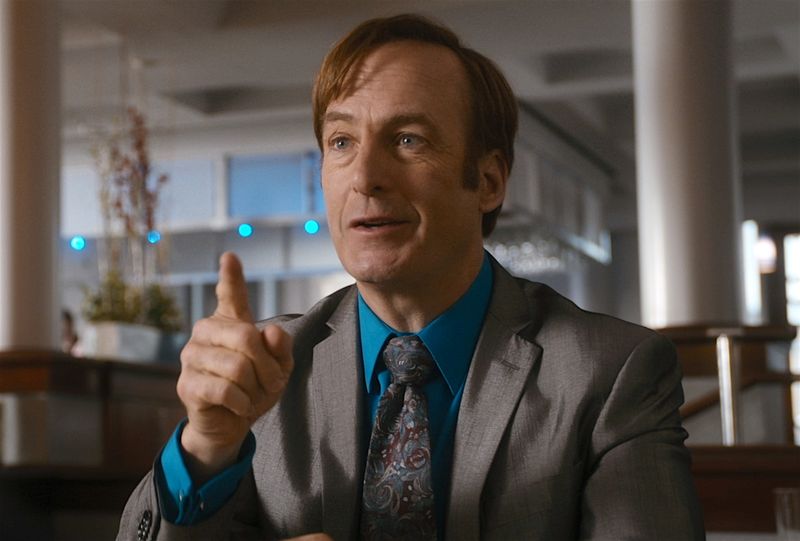
Before he became Walter White’s criminal lawyer, Jimmy McGill was a small-time con artist trying to go straight. His transformation into Saul Goodman shows how the legal system and family disappointment can push someone toward their worst instincts. Jimmy’s charm and quick thinking make his increasingly shady schemes entertaining rather than repulsive.
His complicated relationship with brother Chuck, who never believed in him, drives much of his descent. Jimmy genuinely loves Kim Wexler and tries to be worthy of her, but his need for shortcuts always wins. His schemes often help desperate people the system has failed, blurring ethical lines.
We root for Jimmy because his heart is sometimes in the right place, even when his methods are completely wrong.
8. Cersei Lannister (Game of Thrones)
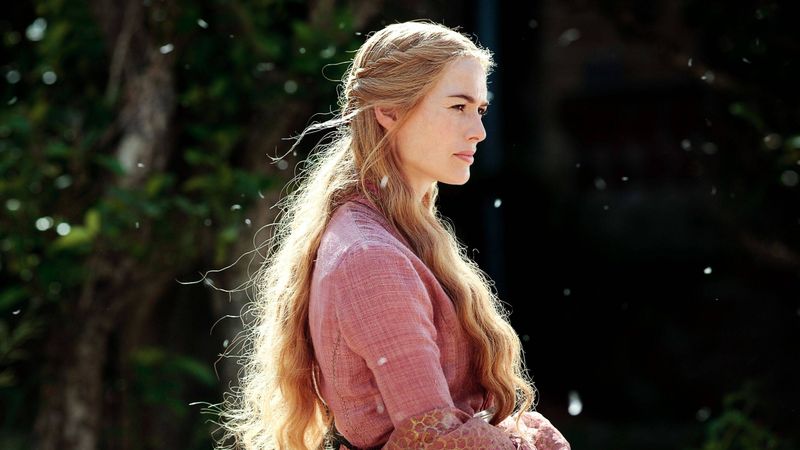
Ruthless, calculating, and willing to burn entire cities to protect her power. Cersei Lannister commits horrific acts throughout the series, yet her fierce love for her children creates unexpected sympathy. Born into a world where women have limited power, she uses every tool available—manipulation, murder, and political cunning—to survive and dominate.
Her relationship with twin brother Jaime is twisted but genuine in its own way. Cersei’s intelligence is constantly underestimated by men who see only her beauty. She endures public humiliation and loses all three children, hardening her into someone who trusts no one.
We understand her rage even when we can’t condone her actions. Cersei represents what happens when a brilliant woman is trapped by patriarchal systems and chooses to burn it all down.
9. Rick Sanchez (Rick and Morty)
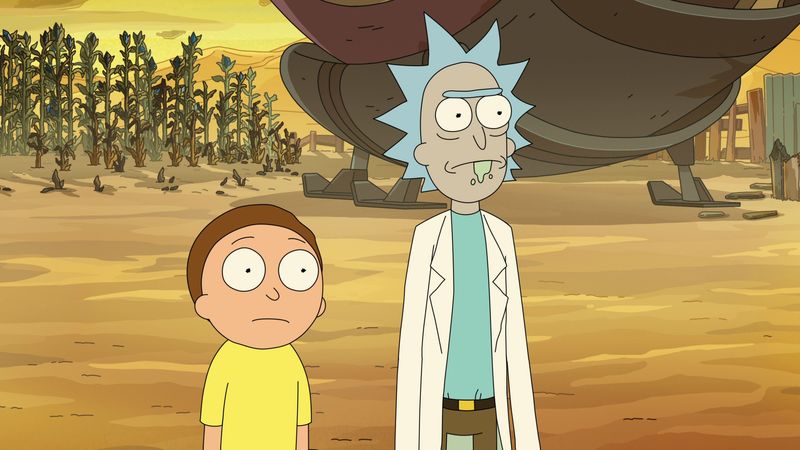
The universe’s smartest man is also its most damaged. Rick Sanchez drags his grandson Morty on dangerous interdimensional adventures while drinking heavily and spouting nihilistic philosophy. His genius-level intellect allows him to create incredible technology and solve impossible problems, but it also makes him aware of how meaningless everything is.
Beneath the crude jokes and reckless behavior lies someone deeply lonely and self-loathing. Rick pushes away anyone who gets close because he believes he’s toxic and will inevitably hurt them. His rare moments of vulnerability reveal genuine love for his family despite constant claims that nothing matters.
We’re drawn to his brilliance and dark humor while recognizing the pain behind his defensive walls. Rick shows how intelligence without emotional connection creates misery.
10. Tommy Shelby (Peaky Blinders)
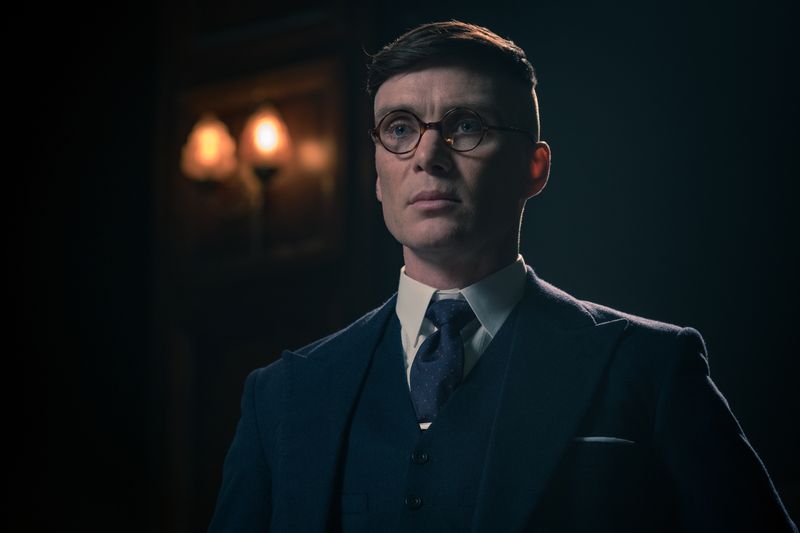
World War I left Tommy Shelby with nightmares and a calculating coldness that serves him well in Birmingham’s criminal underworld. As leader of the Peaky Blinders gang, he combines street smarts with surprising business acumen and political ambition. His strategic mind makes him a formidable opponent to both rival gangs and the establishment.
Tommy’s PTSD and emotional detachment make him dangerous but also vulnerable in unexpected ways. His love for his family, particularly aunt Polly and brothers Arthur and John, drives many decisions. He dreams of legitimizing the family business and rising above their working-class origins.
His style, intelligence, and occasional mercy create a compelling antihero. Tommy represents ambition and trauma colliding in post-war Britain, fighting to build something lasting from violence and chaos.
11. Gregory House, M.D. (House, M.D.)
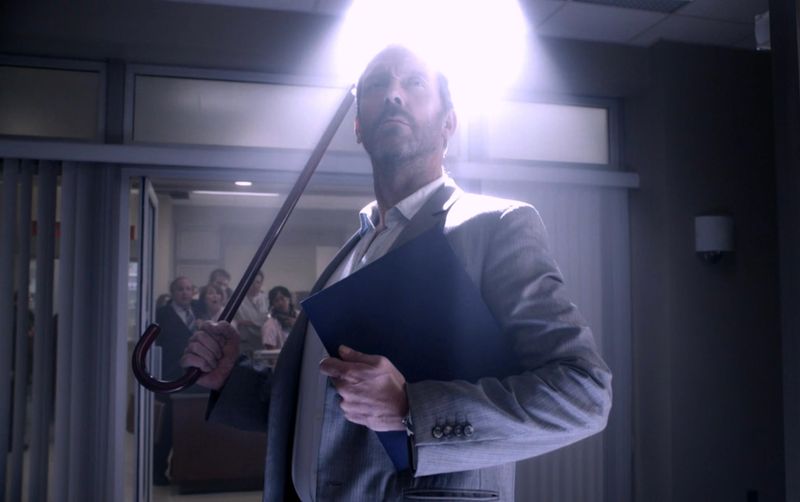
Brilliant diagnostician, terrible human being. Dr. Gregory House solves medical mysteries nobody else can while insulting patients, breaking rules, and popping Vicodin for chronic leg pain. His genius gives him license to behave abominably because he saves lives other doctors would lose. Hospital administrator Cuddy tolerates his behavior specifically because he’s irreplaceable.
House’s cynicism masks deep pain from both physical disability and emotional wounds. His only real friend is oncologist James Wilson, who sees past the defensive sarcasm to the damaged person underneath. House pushes everyone away while desperately craving connection, creating a lonely existence of his own making.
We forgive his cruelty because it comes from a place of hurt and because he’s usually right. House proves that being good at your job doesn’t make you a good person.
12. Frank Underwood (House of Cards)
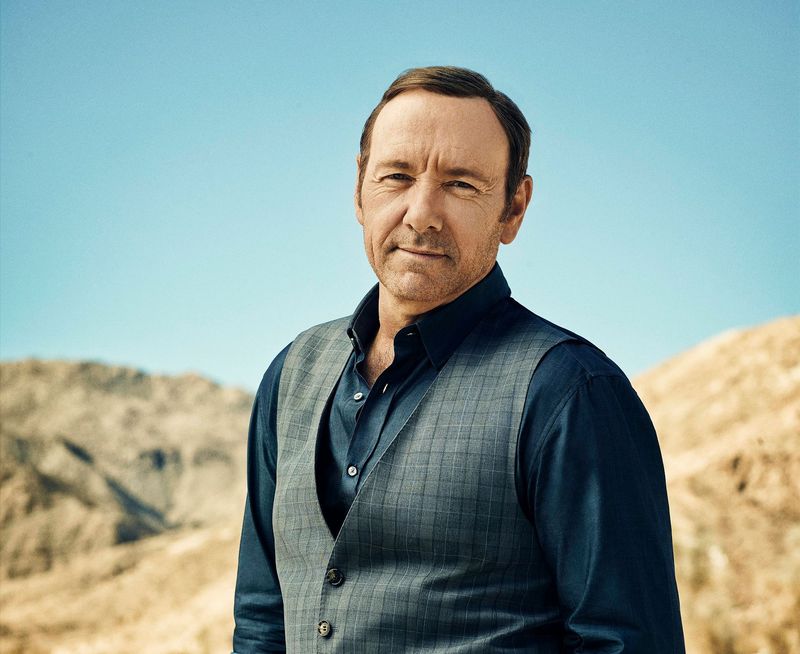
Passed over for Secretary of State, Congressman Frank Underwood decides to take revenge on everyone who betrayed him. His ruthless climb to the presidency involves manipulation, blackmail, and even murder, all executed with chilling precision. Frank breaks the fourth wall to bring viewers into his confidence, making us complicit in his schemes.
His partnership with wife Claire is a calculated political alliance based on mutual ambition rather than love. Together they’re unstoppable, crushing anyone standing between them and power. Frank’s Southern charm and political savvy disguise his complete lack of conscience or loyalty.
We watch in horrified fascination as he destroys lives without remorse. Frank represents the darkest possibilities of political ambition, showing what happens when someone with no moral boundaries seeks ultimate power.
13. Villanelle (Killing Eve)
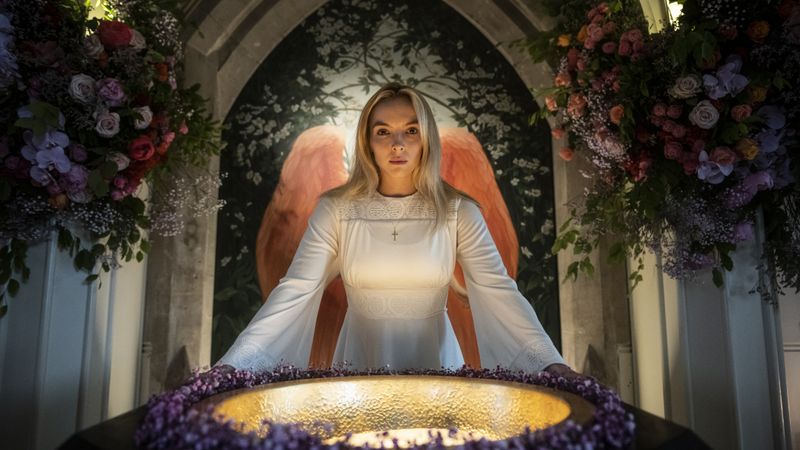
Psychopathic assassin with impeccable fashion sense and zero remorse. Villanelle kills creatively and enthusiastically while living a glamorous lifestyle funded by a shadowy organization. Her childlike enthusiasm for expensive clothes, good food, and elaborate murders creates a disturbing but captivating character. She’s completely unpredictable, which makes her both terrifying and fascinating.
Her obsession with MI6 agent Eve Polastri drives the show’s central relationship. Villanelle craves recognition and connection despite lacking normal empathy. She’s capable of shocking violence one moment and genuine humor the next, keeping everyone off balance. Her confidence and refusal to apologize for her nature feel almost liberating.
We shouldn’t root for a remorseless killer, but Villanelle’s charisma and style make it impossible to look away. She represents complete freedom from social constraints and consequences.
14. Ray Donovan (Ray Donovan)
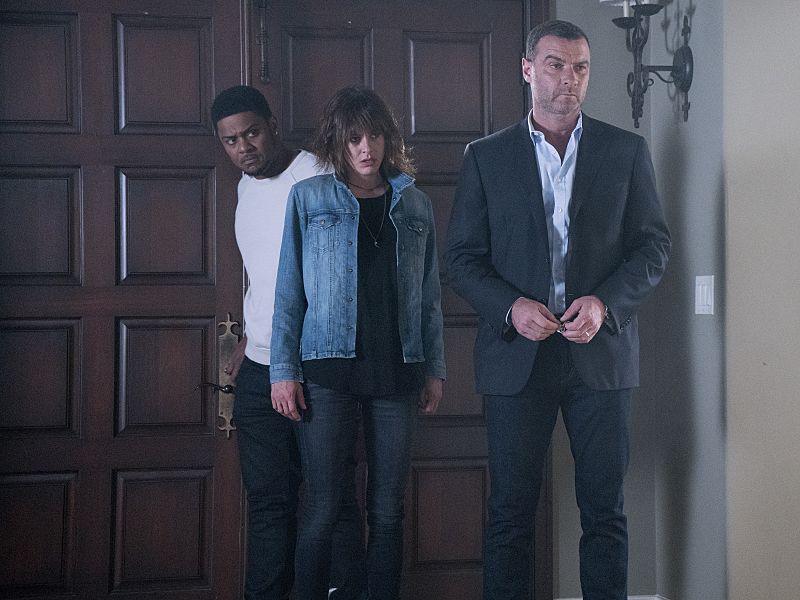
Hollywood’s most dangerous problem-solver handles scandals for celebrities, athletes, and business moguls. Ray Donovan makes problems disappear through intimidation, bribery, and violence when necessary. His loyalty to clients is absolute, but his personal life is a disaster shaped by childhood trauma and his criminal father’s influence.
Ray’s South Boston working-class roots clash with his wealthy Los Angeles clients’ world. He’s a man of few words who expresses himself through action, often violent action. His complicated relationship with wife Abby and attempts to protect his children from his dark world create sympathy despite his brutal methods.
His damaged relationship with father Mickey drives much of his rage and self-destructive behavior. Ray represents the impossible balance between protecting family and being shaped by the very violence you’re trying to shield them from.
15. Barry Berkman (Barry)
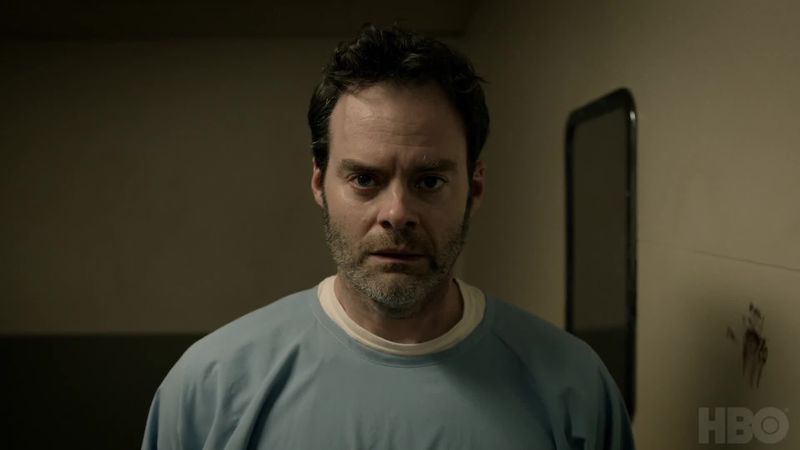
A depressed Midwestern hitman follows a target to Los Angeles and accidentally discovers acting class. Barry Berkman desperately wants to leave his violent life behind and become an actor, but his past keeps pulling him back. His handler and crime boss won’t let him go, and his natural talent for killing makes it the easier path.
Barry’s attempts at normal life and relationships are both darkly comedic and genuinely sad. He’s capable of shocking violence but also vulnerable and hopeful about reinventing himself. His acting teacher Gene Cousineau becomes a father figure, someone who believes in Barry’s potential without knowing his secrets.
We root for his redemption even as bodies pile up around him. Barry explores whether people can truly change or if our nature always wins in the end.

Comments
Loading…